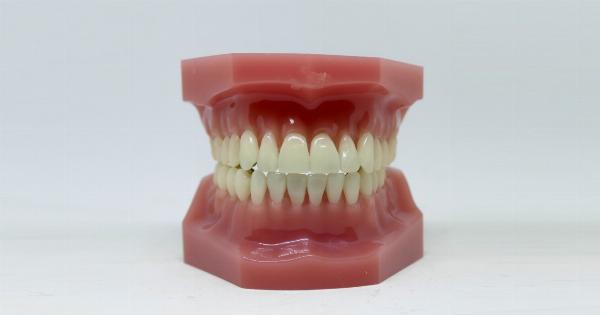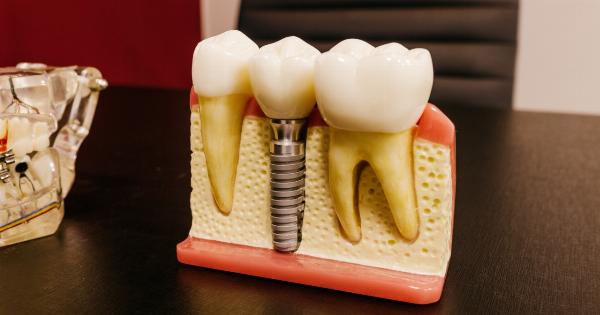When you experience discomfort or pain in your teeth, it can be difficult to determine the root cause.
Tooth sensitivity can be caused by anything from gum disease to tooth decay, and it’s important to pinpoint the problem so you can find the right solution. In this article, we’ll explore some common causes of tooth sensitivity and what you can do to alleviate the pain.
What is Tooth Sensitivity?
Tooth sensitivity is characterized by a sharp pain or discomfort in one or more teeth. This pain is typically triggered by hot or cold temperatures, sweet or acidic foods, or by brushing or flossing.
Tooth sensitivity is extremely common, affecting up to 40 million adults in the US.
Common Causes of Tooth Sensitivity
Gum Recession
The roots of your teeth are protected by a layer of cementum, which is significantly softer and more porous than the enamel on the outside of your tooth.
When your gum tissue begins to recede, the cementum is exposed, making it easier for hot, cold, or acidic substances to infiltrate nerves in your teeth.
Tooth Decay
Cavities occur when bacteria erode the enamel and dentin of your teeth. Without this protective layer, your tooth becomes vulnerable to decay, infection, and sensitivity.
If you suspect a cavity, it’s important to see a dentist right away to stop the decay and prevent further damage.
Abrasion and Aggressive Brushing
If you apply too much pressure when you brush your teeth, you can damage the enamel and expose sensitive portions of your tooth. Toothpaste that is overly abrasive can also wear down your enamel, making your teeth more sensitive over time.
Cracked or Chipped Teeth
Injuries that result in a crack or chip in your tooth can expose the sensitive nerves within. Even hairline cracks can result in significant pain or discomfort, and can eventually lead to infection or further damage if left untreated.
Bruxism
Bruxism, or grinding your teeth, can wear down the enamel and cause sensitivity. Additionally, clenching your teeth can cause your jaws to become sore and lead to nerve pain in your teeth.
Minimizing Tooth Sensitivity
Fortunately, there are a variety of steps you can take to minimize tooth sensitivity and reduce your pain.
Use Sensitive Toothpaste
Several types of toothpaste are formulated specifically for sensitive teeth. These pastes contain potassium nitrate, which can help block the nerve signals that cause pain, and can also help desensitize your teeth.
Change Your Brushing Habits
If you brush your teeth aggressively, try using a softer-bristled brush and a gentler touch. Additionally, avoid brushing your teeth immediately after consuming acidic substances, which can soften the enamel and make it more susceptible to damage.
Instead, rinse your mouth with water and wait at least 30 minutes before brushing.
Visit Your Dentist
Your dentist can check for signs of gum recession, tooth decay, and other problems that can cause tooth sensitivity. If you have a cavity or require a filling, your dentist can treat the issue and restore your tooth to full health.
Consider Desensitizing Treatments
If your tooth sensitivity is particularly severe, your dentist may recommend a desensitizing treatment.
This can include fluoride varnishes, which can help strengthen your enamel, or resin-bonded restorations, which can protect sensitive portions of your teeth.
Conclusion
Tooth sensitivity can be a painful and frustrating condition, but with the right care, you don’t have to suffer.
By understanding the underlying causes of tooth sensitivity and taking the appropriate precautions, you can minimize your discomfort and protect your oral health.






























